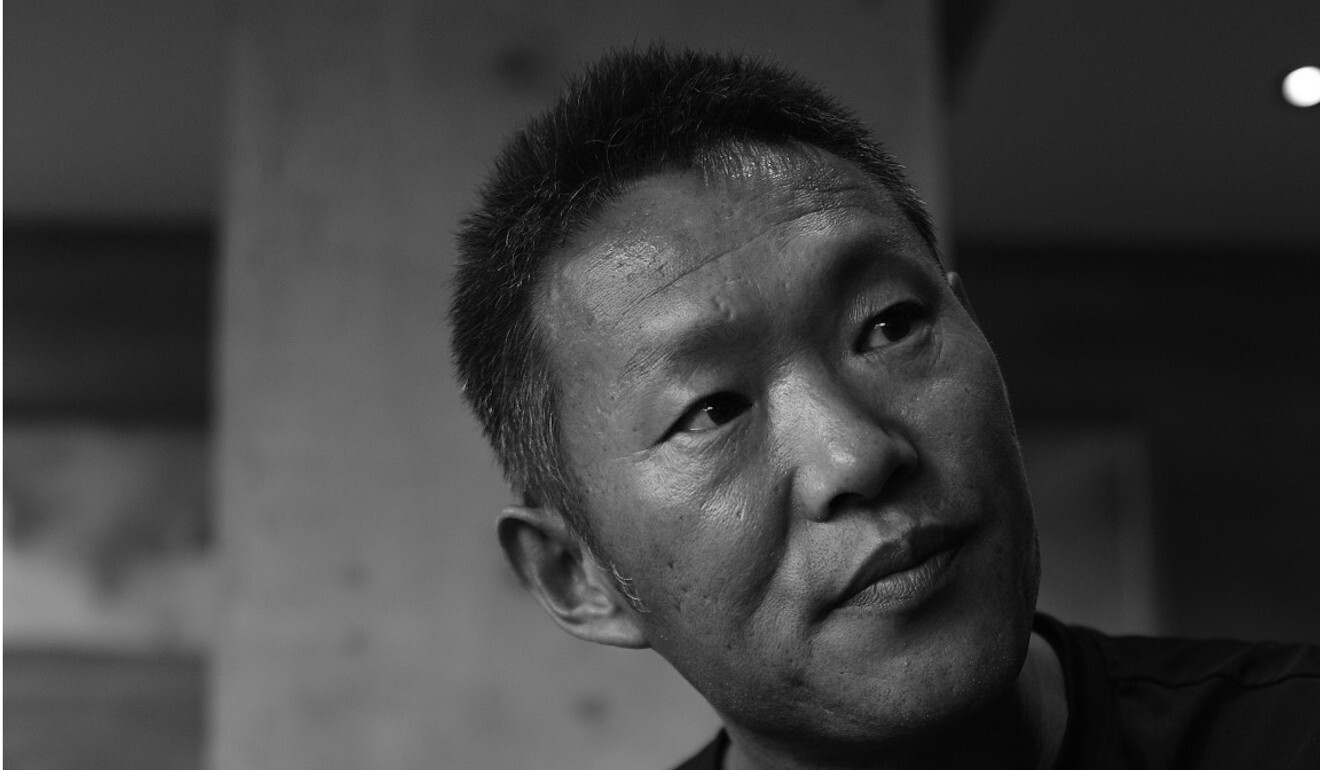
Chinese environmental filmmaker says he hopes ban on solid waste imports is just the beginning
- Once the world’s dumping ground, China will stop importing foreign waste from January 1
- Wang Jiuliang’s award-winning movies helped to promote the need for a policy change
For documentary filmmaker Wang Jiuliang, January 1 means much more than the start of a new year.
“[The ban] is a good policy but it has come late and it’s long overdue,” said Wang, who has produced two documentaries – Beijing Besieged by Waste and Plastic China – on the subject.
“Looking back, I would say all the effort I spent over the past 12 years was well worth it,” he said. “I am glad that I may have played a small part in facilitating the policy change.”

According to Mao Da, executive director of Shenzhen Zero Waste, an NGO that focuses on chemicals management and municipal waste issues, environmentalists, scholars and government officials had been pushing for the import ban for many years, and Wang’s films served as a catalyst for action.
“This ban is really the result of many people’s efforts and [Wang’s] documentaries triggered a direct response from the leadership when they were released and hence had a direct impact on policies,” Mao said.
“Many friends from abroad asked me where they could watch them. These documentaries are milestones, setting off waves of action from China domestically and internationally and they deserve some of the credit.”
Released in 2011, Beijing Besieged by Waste was Wang’s first film about garbage problems in the Chinese capital, and looked at the lives of the scavengers who worked and lived in the hundreds of dumping sites around the city.
Plastic China was an even more ambitious project as Wang investigated how China had become the world’s biggest importer of plastic waste, linking exporters as far away as California with recyclers in a small town in eastern Shandong province.
The 2016 release received critical acclaim and was shown at several major film festivals, including Sundance.
The three-year-long project cost about 2 million yuan (US$306,000) to produce, with the money coming from his former classmates Yue Guanting and Xiong Wei, CNEX – a non-profit organisation set up by documentary enthusiasts – as well as film foundations and Wang’s own savings.
All these dump sites had existed for many years and some were as big as several football fields.
But Wang’s odyssey into China’s waste challenges was not intentional. After graduating from Communication University of China in 2006, he worked as a photographer, producing what he said was “art for art’s sake”.
The turning point came in 2008 – the year Beijing hosted the Olympic Games – when he began to notice the city’s growing waste problem.
Between 2008 and 2011, Wang tracked down more than 460 rubbish dumps around the capital, and spoke to the army of scavengers who made their living recycling foreign waste.
Wang said the discovery was shocking and drove him to begin his environmental mission.
“All these dump sites had existed for many years and some were as big as several football fields,” he said.
“I had lived in Beijing for many years but never thought about the waste problem before and had no idea the city was surrounded by rubbish.”
The problem could be traced back to the rapid changes in China brought about by its wide-ranging reforms, he said.
“I remembered that the countryside was in pristine condition when I was a teenager. But when I returned, much of the environment was ruined,” the 44-year-old Shandong native said.
“I found plastic everywhere – in rivers and farmland, and the farmers used a lot of chemical fertilisers and pesticides to boost their output.”

In Plastic China, Wang went further and deeper in connecting the dots – from a household waste factory in Berkeley, California to the little girl working as a waste recycler in Shandong.
Wang said that while the scavengers worked in horrifying conditions, the exporters were paid for dumping the trash.
“When I was researching in San Francisco, the [waste factory] manager told me that a tonne of plastic sold to China without much sorting was worth US$9,” he said.
“Because of this, the export of plastic waste was considered a part of international trade and not dumping.”
I remembered that the countryside was in pristine condition when I was a teenager. But when I returned, much of the environment was ruined.
Wang’s film went on to win the Special Jury Prize in the newcomers section of the Amsterdam International Documentary Film Festival of 2016.
The same year, more than 46 million tonnes of solid waste – more than half the world’s total – were shipped to China, most of it untreated or sorted. In 2017, the United States alone exported 16 million tonnes of waste to China.
But China had begun slowly waking up to the problem. In 2017, the government introduced new rules to ban the import of foreign waste and notified the World Trade Organization that such trade would stop. By the end of 2018, China’s imports of foreign solid waste had fallen to 76,000 tonnes, according to official customs figures.
Wang is now working on a new project about marine ecology, pollution and excessive fishing in Bohai Bay, off the coast of Shandong.
He declined to speak in detail about the film – provisionally titled Seagull – but said it was currently in editing, and that it had been partly funded by the Chinese actor Chen Xuedong, a keen scuba diver with a special interest in the marine environment.
“I don’t want to say too much now because I just hope that I can get the licence to screen the film in theatres next year – something that I could not do with my previous films,” he said.
China’s vow to cut carbon emissions clashes with plans to expand coal power plants, report says
Mao of Shenzhen Zero Waste said the environmental movement in China had grown in recent years.
“Environmental activists from previous generations were mostly intellectuals, who were interested in issues like ideologies, values, governance and the conflicts between economic development and environmental protection, and had the courage to stand up to businesses and the authorities,” he said.
“But the environmentalists today are more pragmatic and may not be as active as their predecessors in the intellectual circles and may be less vocal in criticising the authorities and businesses,” he said. “Today, given the difficulties in registration and raising money, it is not easy for [environmental] NGOs to survive [in China] and we can only try our best.”
Wang said he was encouraged that the government’s environmental policies were changing for the better.
He said some days he gets up before dawn to edit his new film because “only when you do what you really like, then you can have endless passion and motivation to carry on”.

